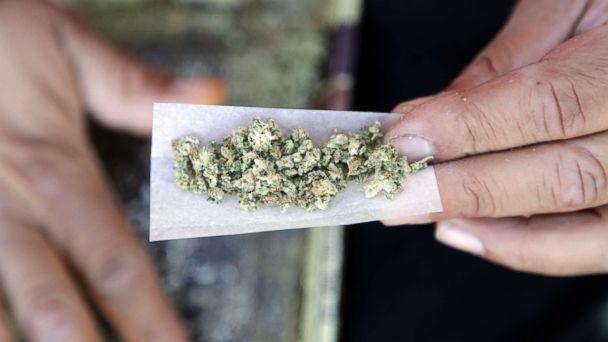
In all, 9,362 people will be eligible for dismissal, according to George Gascon, the San Francisco District Attorney. Each of them had received either a misdemeanor possession convictions or felony convictions for possession with intent to sell, sales or transportation of marijuana or the cultivation of more than six marijuana plants.
Gascon and his team worked with Code for America, a non-partisan group focused on improving government services through technology, to identify the cases - an effort that had been ongoing since January 2018.
"It's important because when people have criminal convictions - especially felony convictions - they are precluded from participating in society in many ways," Gascon said, adding that "we as a society" have determined that the so-called "war on drugs" has been ineffective and this is one way to fix it.
"It's time to unwind the damage that we did," he said.
The move comes as cities and states across the nation work to dismiss similar cases related to marijuana convictions.
In January, Denver announced its "Turn Over a New Leaf" program. So far, it hasn't required applicants to pay for any part of the dismissal or sealing process, according to the Denver District Attorney's Office communications director Carolyn Tyler. She said that courts will waive certain fees while a marijuana advocacy group pays the fee for approved applicants to have their records sealed. It's unclear how long this funding will last, though.
As of Feb. 27, only 38 people have qualified for the program since the measure only applies to individuals whose arrests took place in Denver.
Unlike Denver, San Francisco's initiative will not require inmates to apply. Instead, inmates will automatically have qualifying records dismissed and sealed, with the option to opt out if they want.
In Maine, state legislators are working on a measure to seal or expunge past marijuana convictions throughout the state, the Portland Press Herald reported in January.
In September 2018, judges in Seattle dismissed over 500 marijuana possession convictions, and Gov. Jay Inslee announced a plan to pardon people with misdemeanor marijuana convictions, which could apply to thousands more.
"We shouldn't be punishing people for something that is no longer illegal in Washington State," Inslee said at the time of the announcement. "Forgiving these convictions can help lessen their impact and allow people to move on with their lives. It's a small step, but one that moves us in the direction of correcting these injustices."
Although changes to marijuana policies are happening at a faster rate in the 10 states where recreational use has been legalized, other states are also making efforts to ease their laws. In New York City, for example, possession of or smoking marijuana in one's own home has been decriminalized.
Manhattan District Attorney Cy Vance spoke to a city council committee on Wednesday, noting how there was a 98 percent drop in marijuana prosecutions between Jan. 1 and Feb 26 this year compared to the same time period last year.
"The dual mission of the Manhattan District Attorney's Office is a safer New York and a more equal justice system. The prosecution of predominantly black and brown New Yorkers for smoking marijuana serves neither goal," Vance said at the hearing.
Although marijuana is still illegal on the federal level, Sen. Cory Booker (D-New Jersey) and two other Democrats reintroduced a bill on Thursday that would legalize marijuana on the national level and clear related convictions.

No comments:
Post a Comment